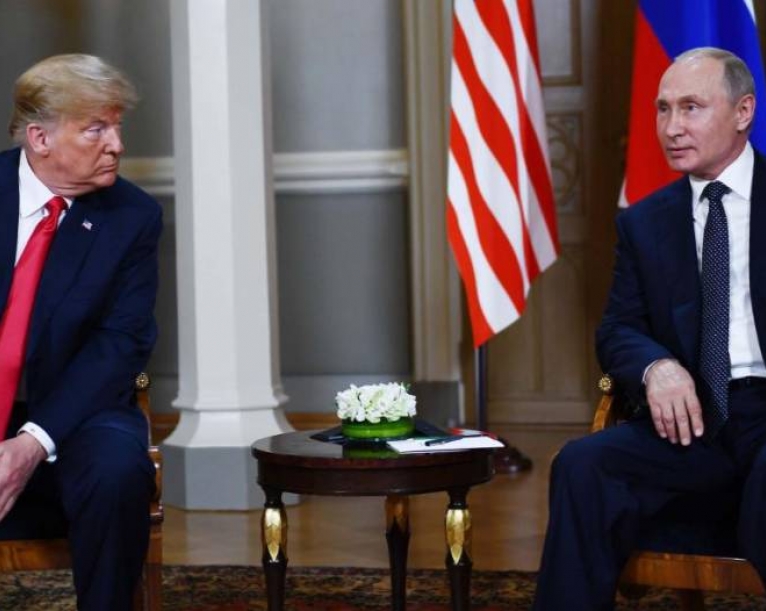
The 2011 New START treaty, the only U.S.-Russia arms control pact limiting deployed strategic nuclear weapons, expires in February 2021 but can be extended for five years if both sides agree. Without the agreement, it could be harder to gauge each other’s intentions, arms control advocates say.
Trump cited the expense of keeping up the U.S. nuclear arsenal as a motivating factor behind wanting to limit how many weapons are deployed.
“We’re talking about a nuclear agreement where we make less and they make less and maybe where we get rid of some of the tremendous firepower that we have right now,” he said.
Trump said China during trade talks had “felt very strongly” about joining the United States and Russia in limiting nuclear weapons.
“So I think we’re going to probably start up something very shortly between Russia and ourselves maybe to start off, and I think China will be added down the road. We’ll be talking about non-proliferation, we’ll be talking about a nuclear deal of some kind, and I think it’ll be a very comprehensive one,” he said.
The New START treaty required the United States and Russia to cut their deployed strategic nuclear warheads to no more than 1,550, the lowest level in decades, and limit delivery systems - land- and submarine-based missiles and nuclear-capable bombers.
It also includes extensive transparency measures requiring each side to allow the other to carry out 10 inspections of strategic nuclear bases each year; give 48 hours notice before new missiles covered by the treaty leave their factories; and provide notifications before ballistic missile launches.
Trump has called the New START treaty concluded by his predecessor, Barack Obama, a “bad deal” and “one-sided.”
The Kremlin said the two sides confirmed they intended to “activate dialogue in various spheres, including strategic security.”
The two men, who last chatted informally at a dinner of world leaders in Buenos Aires on Dec. 1, briefly talked about the report by U.S. Special Counsel Robert Mueller that concluded Trump did not collude with Russia during his 2016 presidential campaign.
Putin seemed amused, said Trump.
“He said something to the effect that it started off as a mountain, and it ended up being a mouse. But he knew that because he knew there was no collusion whatsoever. Pretty much that’s what it was,” he said.
The Kremlin said the call was initiated by Washington. It said the two leaders agreed to maintain contacts on different levels and expressed satisfaction with the “businesslike and constructive nature” of the conversation.
With the United States concerned about a Russian military presence in Venezuela at a time when Washington wants Venezuelan President Nicolas Maduro to leave power, Trump told Putin “the United States stands with the people of Venezuela” and stressed he wanted to get relief supplies into the country, White House spokeswoman Sarah Sanders said.
Putin told Trump that any external interference in Venezuela’s internal business undermines the prospects of a political end to the crisis, the Kremlin said.
The two leaders discussed Ukraine. Trump canceled a summit meeting with Putin late last year after Russia seized three Ukrainian Navy ships on Nov. 25 and arrested 24 sailors. Putin also told Trump that the new leadership in Ukraine should take steps to solve the Ukrainian crisis, the Kremlin said.
Trump also raised with Putin the issue of getting North Korea to dismantle its nuclear weapons and ballistic missile programs. Trump has met twice with North Korean leader Kim Jong Un but Kim has yet to agree to a disarmament deal.
Sanders said Trump mentioned several times “the need and importance of Russia stepping up and continuing to put pressure on North Korea to denuclearize.” The Kremlin said both leaders highlighted the need to pursue denuclearization of the region.
During an April summit with Kim in Vladivostok, Putin expressed Russian support for a gradual process of trading disarmament for sanctions relief.
source:Reuters



